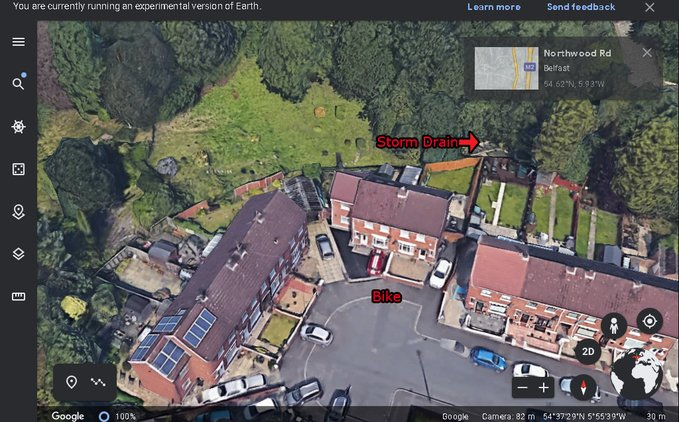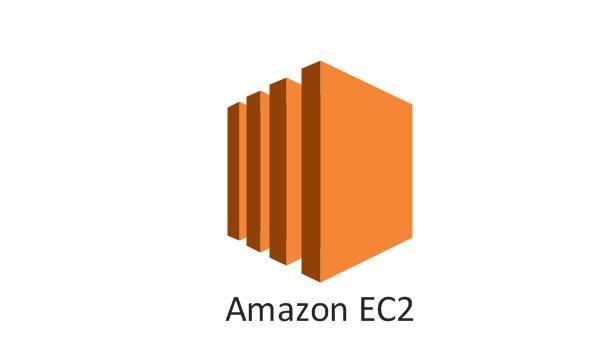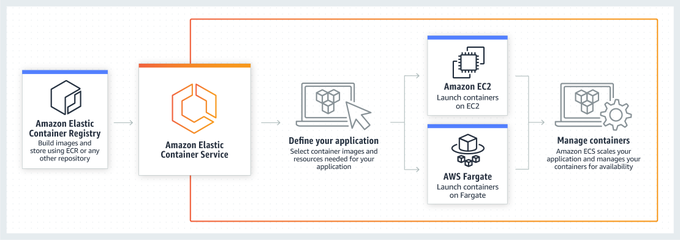Kubernetes is a container orchestrator and thus needs containers to begin with. It's a paradigm shift to more traditional software development, where components are developed, and then deployed to bare metal machines or VMs.
Kubernetes vs Serverless offerings
Why would you need Kubernetes when there are offerings like Vercel, Netlify, or AWS Lambda/Amplify that basically manage everything for you and offer even more?
Well, let's try to look at both approaches and draw our own conclusions!
🧵⏬
Kubernetes is a container orchestrator and thus needs containers to begin with. It's a paradigm shift to more traditional software development, where components are developed, and then deployed to bare metal machines or VMs.
⏬
The offer is pretty simple: You write the code, the platform handles everything else for you. It's basically leaning far to the NoOps side. There is not much to manage anymore.
Take your Next.js / Nuxt.js app, point the ...
Or take Amplify for example. It offers an integrated full-stack experience.
⏬
Before we're going into a comparison, I want you to understand my perspective. As objective as I try to be, I have my own experience which may differ vastly from yours.
So always keep this in mind when reading on!
The workloads I dealt with were more often suited to a Kubernetes deployment, with traditional micro services, handling infrastructure ...
I used serverless especially when we were building the surrounding systems of mobile or web apps, integrating with existing systems which did the heavy lifting.
⏬
There is of course more to serverless than only Vercel, Netlify, AWS Amplify/Lambda/CDK, Azure Functions or whatever the offer is.
You can have serverless databases, serverless message brokers, and much more.
The developer experience is great, because using those offerings is relatively simple. Sometimes there's a good UI or a CLI which helps a lot.
A Next.js / Nuxt.js app without any backend functionality besides SSR can be deployed in 5 minutes and scales and scales and scales.
You can either decide to pick wildly through the whole catalogue and have your database hosted here, while your app is hosted there, and your messaging service is somewhere completely different.
Already on AWS?
Need a database? DynamoDB!
Need a message queue? SQS!
Need backend functionality? Lambda!
Need storage? S3!
And now you have branded code. You won't be able to move from AWS to let's say Azure easily.
Well, that's a whole migration project then which may, depending on the size of your system, take quite some time.
If you ever considered the management of 50 micro services to be difficult, what about 360 lambda functions? You'll need good documentation to be able to recall all of them and what each and every one does.
⏬
Kubernetes itself is a container orchestrator, as we already learned. It works with all sorts of containers. Every application that can be containerized can be run on K8s.
View Kubernetes as a blank sheet of papers. You can write nearly everything on it, or remove it again if you don't want it anymore. And this offers a lot more flexibility.
Need messaging? Deploy your own RabbitMQ or Kafka or, again, use something offered by your cloud provider.
Need...? I think you see where this is going.
And if traditional micro services aren't for you, you can even deploy your own serverless function infrastructure (https://t.co/ynaXXliREv)!
Simply put: You need people doing this for you and it's complex.
So you'll need DevOps / Site Reliability Engineers that handle at least CI/CD and all those infrastructure components for you. And optimally, they'll take care of everything related to the cluster.
- Monitoring
- Automating
- Deployments
- Disaster recovery
- Alerting
- Upgrading components
- And a lot more
⏬
You hate those answers, I know, but it is how it is.
Neither does Kubernetes win, nor does serverless.
They each fill a specific niche in which they are good at.
And it's especially a good choice to use serverless when you're developing a mobile or web app.
It's also great for backend-heavy systems, with a lot of APIs that do not only exist to fulfill the needs of mobile and a web app.
⏬
More from Software
@JuliaLMarcus @Iplaywithgerms This paper gives documentation on software (with causal reasoning, assumptions reviewed in appendix) for a parametric approach to estimating either "total effects" or "controlled direct effects" with competing events and time-varying
@Iplaywithgerms Total effects capture paths by which treatment affects competing event (e.g. protective total effect of lifesaving treatment on dementia may be wholly/partially due to effect on survival). Controlled direct effects do not capture these paths
@Iplaywithgerms More detailed reasoning on the difference and tradeoffs between total and controlled direct effects and causal reasoning in the point treatment context provided here along with description of some estimators and
@Iplaywithgerms If you are familiar with more robust approaches like IPW or even better TMLE for time-varying treatment, these are trivially adapted to go after the controlled direct effect by simply treating competing events like loss to follow-up (censoring). e.g.
@Iplaywithgerms Examples of IPW estimation of the total effect of a time-varying treatment described in Appendix D of this paper:
https://t.co/RNhcgTBMkb
And here
https://t.co/rMWmwFBWwV
Others in reference lists of above papers.
@Iplaywithgerms Total effects capture paths by which treatment affects competing event (e.g. protective total effect of lifesaving treatment on dementia may be wholly/partially due to effect on survival). Controlled direct effects do not capture these paths
@Iplaywithgerms More detailed reasoning on the difference and tradeoffs between total and controlled direct effects and causal reasoning in the point treatment context provided here along with description of some estimators and
@Iplaywithgerms If you are familiar with more robust approaches like IPW or even better TMLE for time-varying treatment, these are trivially adapted to go after the controlled direct effect by simply treating competing events like loss to follow-up (censoring). e.g.
@Iplaywithgerms Examples of IPW estimation of the total effect of a time-varying treatment described in Appendix D of this paper:
https://t.co/RNhcgTBMkb
And here
https://t.co/rMWmwFBWwV
Others in reference lists of above papers.
You May Also Like
“We don’t negotiate salaries” is a negotiation tactic.
Always. No, your company is not an exception.
A tactic I don’t appreciate at all because of how unfairly it penalizes low-leverage, junior employees, and those loyal enough not to question it, but that’s negotiation for you after all. Weaponized information asymmetry.
Listen to Aditya
And by the way, you should never be worried that an offer would be withdrawn if you politely negotiate.
I have seen this happen *extremely* rarely, mostly to women, and anyway is a giant red flag. It suggests you probably didn’t want to work there.
You wish there was no negotiating so it would all be more fair? I feel you, but it’s not happening.
Instead, negotiate hard, use your privilege, and then go and share numbers with your underrepresented and underpaid colleagues. […]
Always. No, your company is not an exception.
A tactic I don’t appreciate at all because of how unfairly it penalizes low-leverage, junior employees, and those loyal enough not to question it, but that’s negotiation for you after all. Weaponized information asymmetry.
Listen to Aditya
"we don't negotiate salaries" really means "we'd prefer to negotiate massive signing bonuses and equity grants, but we'll negotiate salary if you REALLY insist" https://t.co/80k7nWAMoK
— Aditya Mukerjee, the Otterrific \U0001f3f3\ufe0f\u200d\U0001f308 (@chimeracoder) December 4, 2018
And by the way, you should never be worried that an offer would be withdrawn if you politely negotiate.
I have seen this happen *extremely* rarely, mostly to women, and anyway is a giant red flag. It suggests you probably didn’t want to work there.
You wish there was no negotiating so it would all be more fair? I feel you, but it’s not happening.
Instead, negotiate hard, use your privilege, and then go and share numbers with your underrepresented and underpaid colleagues. […]
Krugman is, of course, right about this. BUT, note that universities can do a lot to revitalize declining and rural regions.
See this thing that @lymanstoneky wrote:
And see this thing that I wrote:
And see this book that @JamesFallows wrote:
And see this other thing that I wrote:
One thing I've been noticing about responses to today's column is that many people still don't get how strong the forces behind regional divergence are, and how hard to reverse 1/ https://t.co/Ft2aH1NcQt
— Paul Krugman (@paulkrugman) November 20, 2018
See this thing that @lymanstoneky wrote:
And see this thing that I wrote:
And see this book that @JamesFallows wrote:
And see this other thing that I wrote:
THREAD PART 1.
On Sunday 21st June, 14 year old Noah Donohoe left his home to meet his friends at Cave Hill Belfast to study for school. #RememberMyNoah💙

He was on his black Apollo mountain bike, fully dressed, wearing a helmet and carrying a backpack containing his laptop and 2 books with his name on them. He also had his mobile phone with him.
On the 27th of June. Noah's naked body was sadly discovered 950m inside a storm drain, between access points. This storm drain was accessible through an area completely unfamiliar to him, behind houses at Northwood Road. https://t.co/bpz3Rmc0wq

"Noah's body was found by specially trained police officers between two drain access points within a section of the tunnel running under the Translink access road," said Mr McCrisken."
Noah's bike was also found near a house, behind a car, in the same area. It had been there for more than 24 hours before a member of public who lived in the street said she read reports of a missing child and checked the bike and phoned the police.
On Sunday 21st June, 14 year old Noah Donohoe left his home to meet his friends at Cave Hill Belfast to study for school. #RememberMyNoah💙

He was on his black Apollo mountain bike, fully dressed, wearing a helmet and carrying a backpack containing his laptop and 2 books with his name on them. He also had his mobile phone with him.
On the 27th of June. Noah's naked body was sadly discovered 950m inside a storm drain, between access points. This storm drain was accessible through an area completely unfamiliar to him, behind houses at Northwood Road. https://t.co/bpz3Rmc0wq

"Noah's body was found by specially trained police officers between two drain access points within a section of the tunnel running under the Translink access road," said Mr McCrisken."
Noah's bike was also found near a house, behind a car, in the same area. It had been there for more than 24 hours before a member of public who lived in the street said she read reports of a missing child and checked the bike and phoned the police.




























